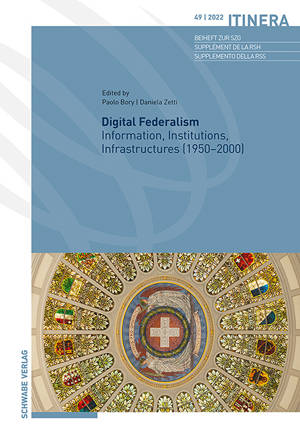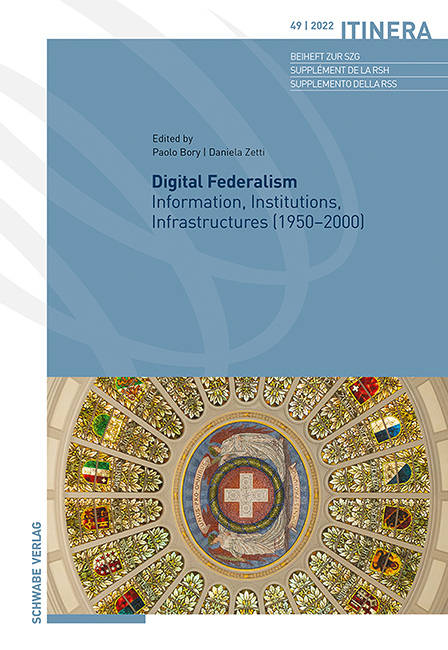
- Afhalen na 1 uur in een winkel met voorraad
- Gratis thuislevering in België vanaf € 30
- Ruim aanbod met 7 miljoen producten
- Afhalen na 1 uur in een winkel met voorraad
- Gratis thuislevering in België vanaf € 30
- Ruim aanbod met 7 miljoen producten
Zoeken
Digital Federalism
Information, Institutions, Infrastructures (1950-2000)
€ 47,45
+ 94 punten
Omschrijving
The history of federalism in the digital age unfurls against a complex backdrop of dreams and expectations, cooperation and conflict, and preservation and change. Throughout this history, a range of individual and institutional actors in pursuit of a common goal are forced to grapple with a constantly shifting balance of resources, technologies, and responsibilities. Contributions deal with topics such as the relationship between and among states, information, and computers; federal dealings with respect to migration and university policy; and the social and political coordination required both locally and nationally by high-performance computing. The editors' introduction reflects on how different forms of autonomy and authority were negotiated to achieve the benefits of digital technologies within social and material spaces.
Specificaties
Betrokkenen
- Uitgeverij:
Inhoud
- Aantal bladzijden:
- 176
- Taal:
- Engels
- Reeks:
Eigenschappen
- Productcode (EAN):
- 9783796545085
- Verschijningsdatum:
- 14/03/2022
- Uitvoering:
- Paperback
- Formaat:
- Trade paperback (VS)
- Afmetingen:
- 156 mm x 14 mm
- Gewicht:
- 807 g

Alleen bij Standaard Boekhandel
+ 94 punten op je klantenkaart van Standaard Boekhandel
Beoordelingen
We publiceren alleen reviews die voldoen aan de voorwaarden voor reviews. Bekijk onze voorwaarden voor reviews.










